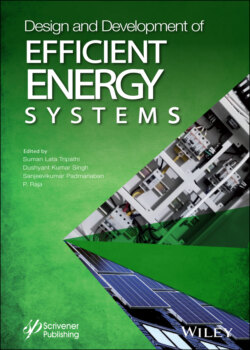Читать книгу Design and Development of Efficient Energy Systems - Группа авторов - Страница 61
4
Machine Learning for Smart Healthcare Energy-Efficient System
ОглавлениеS. Porkodi1*, Dr. D. Kesavaraja1† and Dr. Sivanthi Aditanar2
1 Department of Computer Science and Engineering, Tamil Nadu, India
2 College of Engineering, Tiruchendur, Tamil Nadu, India
Abstract
IoT devices have gained global interest over the last decade and are advancing in many industries in today’s digital world. In the healthcare sector, a real-time remote health monitoring system has been developed with wearable IoT devices and machine learning to provide early intimation of risk and preventive measures during a time of emergency. The main problem is that if the data are stored in cloud and processed, huge network latency is required. Thus edge-cloud computing is used to reduce the network latency and the complex computations at the user end is processed by the machine learning techniques to obtain better performance. Usage of the edge computing also gives a better response in real-time computing, minimized bandwidth cost and efficient power consumption. In this chapter, smart healthcare energy-efficient systems with a machine learning framework is proposed. The healthcare system makes use of IoT devices for data acquisition and relevant information is extracted from the huge set of collected data. Front-end machine learning is used to make decisions intelligently based on the extracted information within the sensor framework. In back end, the machine learning automatically learns from the training data set samples and guidelines, which are already fed into the system, for intelligent decision-making capabilities. Thus a smart healthcare system is developed with machine learning, which is energy efficient, with reduced network latency and minimized bandwidth.
Keywords: Smart healthcare, internet of things, machine learning, energy-efficient system, edge computing
